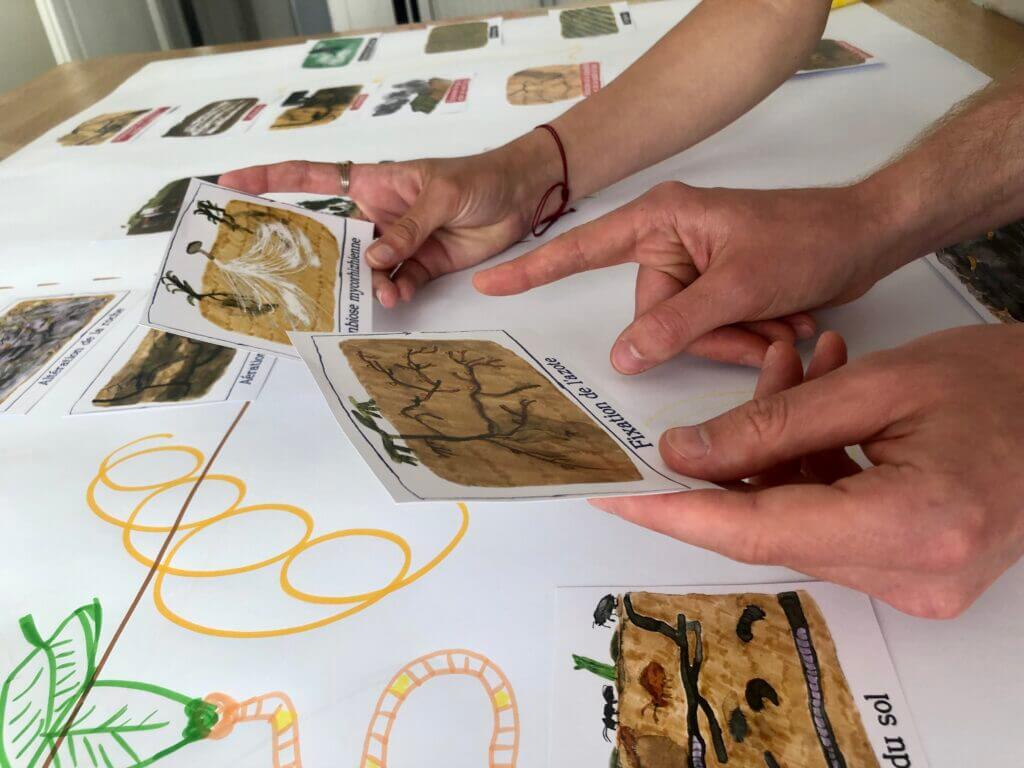Case study: The Living Soils Workshop – a Serious Game about soil and agriculture

Photo acknowledgement:
- General public
- Indoor
- Game, Workshop / training
- Netherlands
The Living Soils Workshop – a Serious Game about soil and agriculture
Inspired by the Climate Fresk pedagogy, the Living Soils Workshop is designed to foster a shared understanding of soil function and conservation. Utilizing a card-based game as a collaborative tool, participants explore the consequences of agricultural practices and engage in role-playing discussions on actions for improved soil management that could be taken at different levels. The game is open to anyone interested and can be customised for individuals and teams.
The workshop was collaboratively developed by Sparknews and the Ludi Soli association, with support from Moët Hennessy, and contributions from globally renowned soil scientists and a specialized soil revitalization company.
Objective
The Living Soils Workshop has the following objectives:
- To provide participants with a foundational understanding of soil ecosystems, their interactions, and the critical role of soil in supporting life.
- To enable participants to understand and evaluate the impact of agricultural practices on soil health and the wider environment.
- To empower participants to identify collaborative solutions to mitigate these challenges.
Ultimately, the overarching goal is to inspire and enable participants to act towards sustainable soil management and advocate for change within their communities.
Approach
The Living Soils Workshop is a collaborative learning tool designed to raise awareness of soil health and its significance. Within a 90-minute timeframe, participants engage with 30 cards to explore soil ecosystems, vital cycles, and the impacts of agricultural practices. The workshop is structured into three phases:
Phase 1: Participants collaboratively construct a model of the soil ecosystem, placing key components and explaining their interactions. Concepts such as mineralization, photosynthesis, nitrogen fixation, nutrient cycles, and mycorrhizae are introduced and adjusted based on participants’ background knowledge. The phase encourages knowledge sharing and facilitates collaborative learning.
Phase 2: Players explore agricultural practices and their impact on soil health and the broader environment.
Phase 3: Players analyze the human and environmental costs of unsustainable practices and engage in collaborative solution-building. Drawing on their gained knowledge, players adopt the roles of policymakers, farmers, and citizens to explore potential strategies for mitigating soil-related threats.
The Living Soils Workshop is interesting for several reasons:
- Innovative gamified approach: A gamified, collaborative approach makes complex soil science concepts accessible and engaging.
- System-level thinking: The workshop provides participants with a holistic view of soil health, linking it to broader issues like climate change and food security.
- Empowering participants: Beyond raising awareness, the workshop encourages evidence-based discussions and identifies actions for sustainable soil management. It aims to create a network of informed advocates capable of driving policy-level support for regenerative practices within their communities.
Link for further information
https://www.ateliersolsvivants.org/ (In English)
